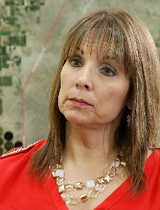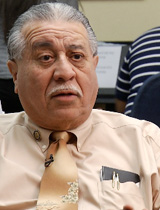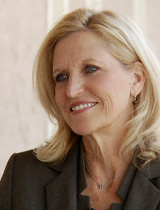Yuma, Ariz. had the highest unemployment rate of any metropolitan area in the country in January 2014, according to figures from the U.S. Bureau of Labor Statistics.
At 26.1 percent, Yuma's reported unemployment numbers nearly quadrupled the rates in Phoenix, Mesa and Glendale - which are at 6.7 percent altogether - as well as Tucson's 6.9 percent unemployment rate.
 Julie Engel, president and CEO of Greater Yuma Economic Development.
Julie Engel, president and CEO of Greater Yuma Economic Development. John Morales, executive director of the Yuma Private Industry Council.
John Morales, executive director of the Yuma Private Industry Council.However, many labor and economic experts in Yuma argue these numbers are a bit skewed, and don't reflect the economic and labor opportunities the city now has, and is working on growing. They say Yuma has various industries that are seasonal, which sometimes result in "unflattering" unemployment rates.
"When we did a study....the (researchers) got to know the labor market (here) pretty well, and what they told us is that what happens in a seasonal economy...is we have two distinct labor markets but we are treated as one by the Bureau of Labor Statistics," said John Morales, executive director of the Yuma Private Industry Council, during Friday's broadcast of Arizona Week. "And they will not change that."
Yuma's economy consists of three major industries: agriculture, military and tourism, and manufacturing is an emerging force, said Julie Engel, president and CEO of Greater Yuma Economic Development Corporation. But many of those are transitory, as people in these fields come and go depending on the season, she explained.
There have also been issues of people, who temporarily work in Yuma, filing for unemployment in the city, while they are away working in neighboring cities in Mexico, California or elsewhere.
Engel said the size of Yuma's community, according to the 2010 U.S. Census Bureau, is about 25,000 people, yet there are approximately 100,000 post office boxes at the post office for people to get their unemployment checks.
For instance, those who leave Yuma after the agriculture season is over and go work in California or Mexico, draw unemployment in Arizona, so it's natural that during that time the unemployment rate in the city spikes. The same happens in other cities when workers return to Yuma, she explained.
"I have described it as fraud," Engel said. "I have encouraged our local news and our reporters to launch an investigative report on this, try and get to the bottom of this."
 Linda Morgan, executive director of the Yuma Convention and Visitor's Bureau.
Linda Morgan, executive director of the Yuma Convention and Visitor's Bureau.For companies looking at Yuma to establish businesses, the reported unemployment numbers may be portrayed as a huge red flag. And, Engel said, these concerns are brought up in negotiations, but her answer is constant: Yuma's community is stable and strong, and they have facts to back that up, such as having the biggest number of engineers and technicians in the state of Arizona, and being praised for their work force by established manufacturing companies.
She said the opportunities in Yuma continue to grow. They have great natural resources, a lot of water and land, and their location on the map is a huge plus.
"We border two states in Mexico and we border California," Engel said. "And Yuma is the closest location to the metro areas in California that are conductive to the transportation of goods in and out of the country."
She argued they have a foreign trade zone that makes the city very attractive to outside investors.
Linda Morgan, executive director of the Yuma Convention and Visitor's Bureau, agreed and said Yuma is a great place to settle in - whether for families or businesses.
"Every time those (unemployment) statistics come out, we do get calls from all over the U.S., because reporters want to know what it is like...where they perceive to be a very depressed economy," Morgan said. "And it truly is not in any shape or form. It is definitely not a depressed economy, and when people get off the interstate and they stop in Yuma, they are always amazed."

By submitting your comments, you hereby give AZPM the right to post your comments and potentially use them in any other form of media operated by this institution.